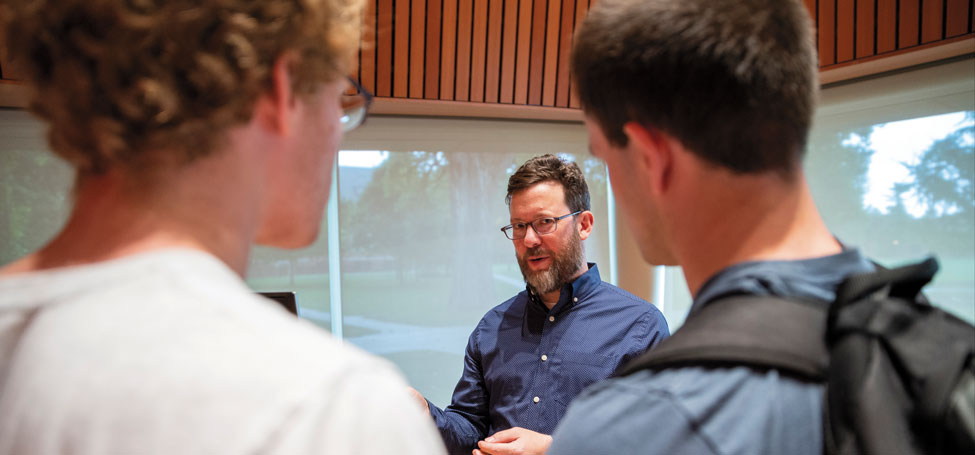
Three Strikes and You’re … in Business
“There are more soccer clubs in the world than there are people who have ever played major league baseball,” says Sean Forman ’94. As president of Sports Reference, a collection of online sports data encyclopedias that includes baseball, football, basketball, hockey, and soccer, he ought to know.
Yet Forman’s path to an innovative business in sports analytics was not exactly a straight line. Growing up in Manning, Iowa, where his dad was the football coach, Forman helped compile the summary stats after games and wrote sports stories for his local paper.
At Grinnell he was a serious fantasy baseball player and a math major. Forman figured he could either be a teacher or an engineer, so he pursued a 3-2 engineering program. A semester shy of completing his second bachelor’s degree, he realized it wasn’t the right field for him. With the flexibility and nimbleness typical of Grinnellians, Forman changed course and earned a doctorate in applied math at the University of Iowa.
But baseball was still an important part of his world. “My last year at Iowa I was supposed to be doing my dissertation,” Forman says. “I created a baseball reference instead.”
Forman worked on the baseball website on the side, even after he landed a tenure-track job at St. Joseph’s University in Philadelphia. In the mid-2000s, he realized he wanted to do the website full time. But he didn’t have tenure yet, and taking a leave of absence to work on a baseball website could endanger that. So he waited.
In 2006, after securing tenure, Forman took a leave of absence and dove full time into the world of sports data and analytics. “By that point I was making enough money that it did not seem like a completely insane decision,” he says.
Forman and his 10 employees continued to add features and content. About a year before the 2019 Women’s World Cup, he wanted to create the first comprehensive, online data collection of women’s soccer statistics.
Forman teamed up with Xavier Escandell, associate professor of anthropology and director of the Data Analysis and Social Inquiry Lab (DASIL) at Grinnell. Forman and Escandell, along with DASIL student mentors LaAnna Farnelli ’20, Anshul Tambay ’20, and Daniel Cook ’19, as well as Katherine Walden, digital liberal arts specialist, and Jarren Santos ’17, data scientist, crafted a plan to create a database of Women’s World Cup data since its beginning in 1991.
The students worked with the data “in a real, tangible way,” Forman says, that let them learn useful tools. “I’ve always found actually trying to do something is the best way to learn it.”
